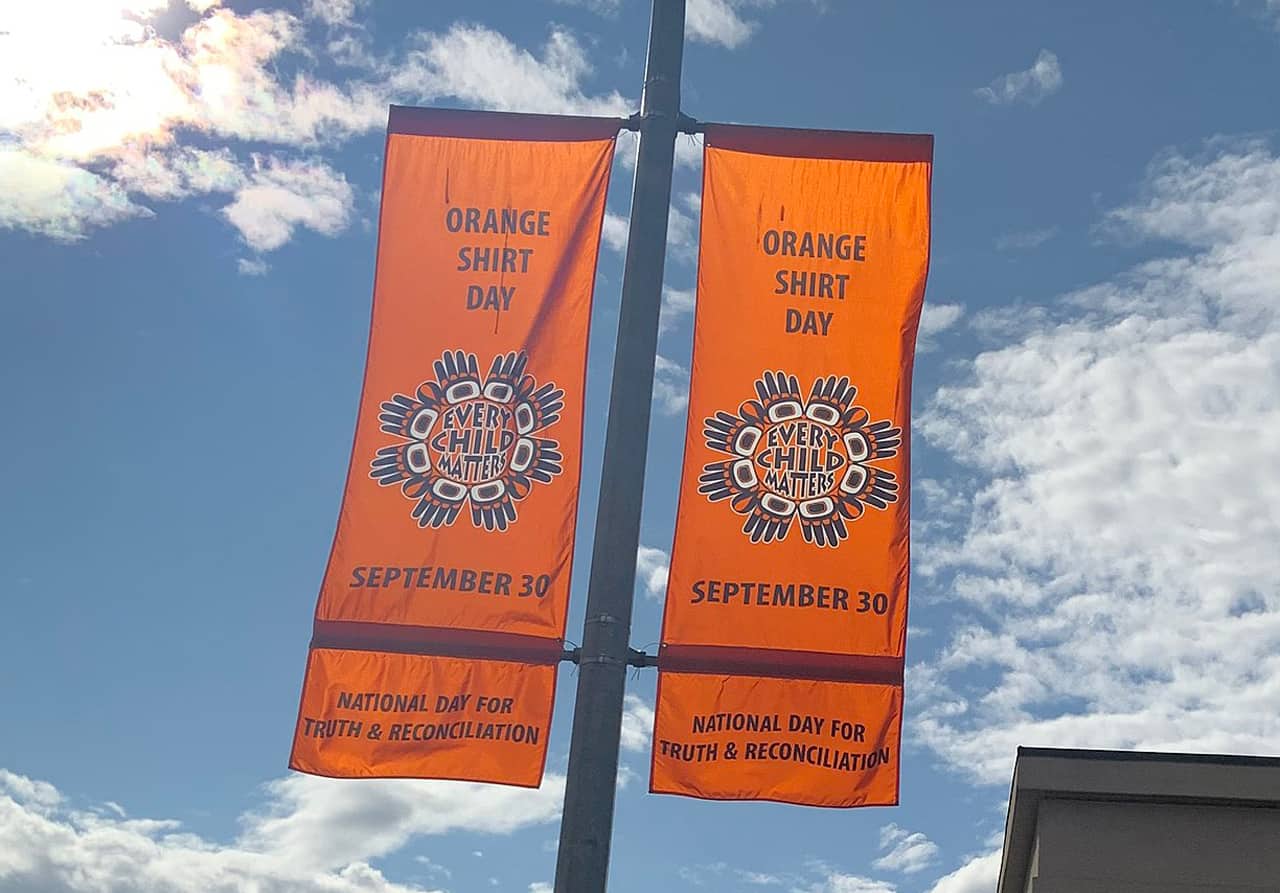What’s open and closed on National Day of Truth and Reconciliation in Hamilton
Published September 27, 2024 at 11:16 am

Monday, Sept. 30, marks Canada’s fourth official National Day of Truth and Reconciliation, a day to recognize the harm the country did to its Indigenous Peoples through the residential school system.
Though the day has been a federally regulated holiday in Canada since 2021, it is not officially recognized by the Province of Ontario. As a result, most closures are at the federal and municipal levels.
This includes Canada Post, passport services, Service Canada and the Canada Revenue Agency. However, municipal services such as city hall will remain open in Hamilton. Most businesses will also operate as usual, including grocery stores, shops, restaurants, and Beer Store locations. The LCBO will open two hours later than normal.
However, this will be the last time city hall will not observe National Day of Truth and Reconciliation. In a meeting on Sept. 25, Mayor Andrea Horwath submitted a motion to formally recognize the day.
The city noted that several other municipalities acknowledge the day, such as Mississauga, Brampton, and Oakville. It also notes that Hamilton has pledged to support Truth and Reconciliation and established an Urban Indigenous Strategy.
The city will be hosting an event to mark the day.
The day is also celebrated in conjunction with Orange Shirt Day, which is held to honour residential school system survivors and their families.
Canada’s residential school system began in the 1800s to force the cultural assimilation of Indigenous children. Over the next century, the federal government forced 150,000 children to attend 130 schools where they were forbidden from speaking their first languages and expressing their cultural practices.
Abuse and neglect ran rampant through the system, mostly run by the Catholic and Anglican churches. Estimates are difficult due to incomplete records, but up to 30,000 children are believed to have died in the schools, mostly from disease. The last school closed in 1996. There are still around 80,000 living survivors.
Closest to Hamilton is the Mohawk Institute Residential School in Brantford. Founded in 1831, this is one of the oldest such schools. Up to 200 children were sent to the school yearly until it closed in 1970.
As in other institutions, abuse was common at the Mohawk Institute, which students dubbed “The Mush Hole” due to its poor quality food. School workers often sexually abused the children, according to survivor reports. Due to the frequency of runaways, staff built a prison cell in the basement where they imprisoned children accused of wrongdoing.
Orange Shirt Day was inspired by Phyllis Jack Webstad, a residential school survivor. When Webstad arrived at St. Joseph’s Mission Residential School outside Williams Lake, BC, she was stripped of the clothes she had brought including a brand-new orange shirt.
(St. Joseph’s operated as a residential school for ninety years from 1890 to 1981. Numerous children died including Duncan Sticks in 1902 who ran away and froze to death and Augustine Allan who drank hemlock in an attempted suicide pact in 1920. Three priests who worked at the school were later convicted for dozens of sexual assaults at the school.)
Webstad’s clothes were never returned. Near the 40th anniversary of Webstad’s arrival, she shared her story at a school reunion. The tale, and the orange shirt, soon became a symbol of the reclamation of Indigenous identity in the face of Canada’s history of forced assimilation.
In 2015, the Truth and Reconciliation Commission released its report on the residential school system finding it amounted to cultural genocide. The commission released a long list of recommendations to address the damage of the system, including the establishment of Reconciliation Day
According to Indigenous Watchdog, 66 of the 94 Calls to Action in the report are complete or in progress nine years after the report. This is considerably lower than the federal government’s claims they’ve at least started 85 per cent of the Calls to Action.
The day remained an informal event for several years until the Canadian government recognized it as a statutory holiday in 2021.
INthehammer's Editorial Standards and Policies




